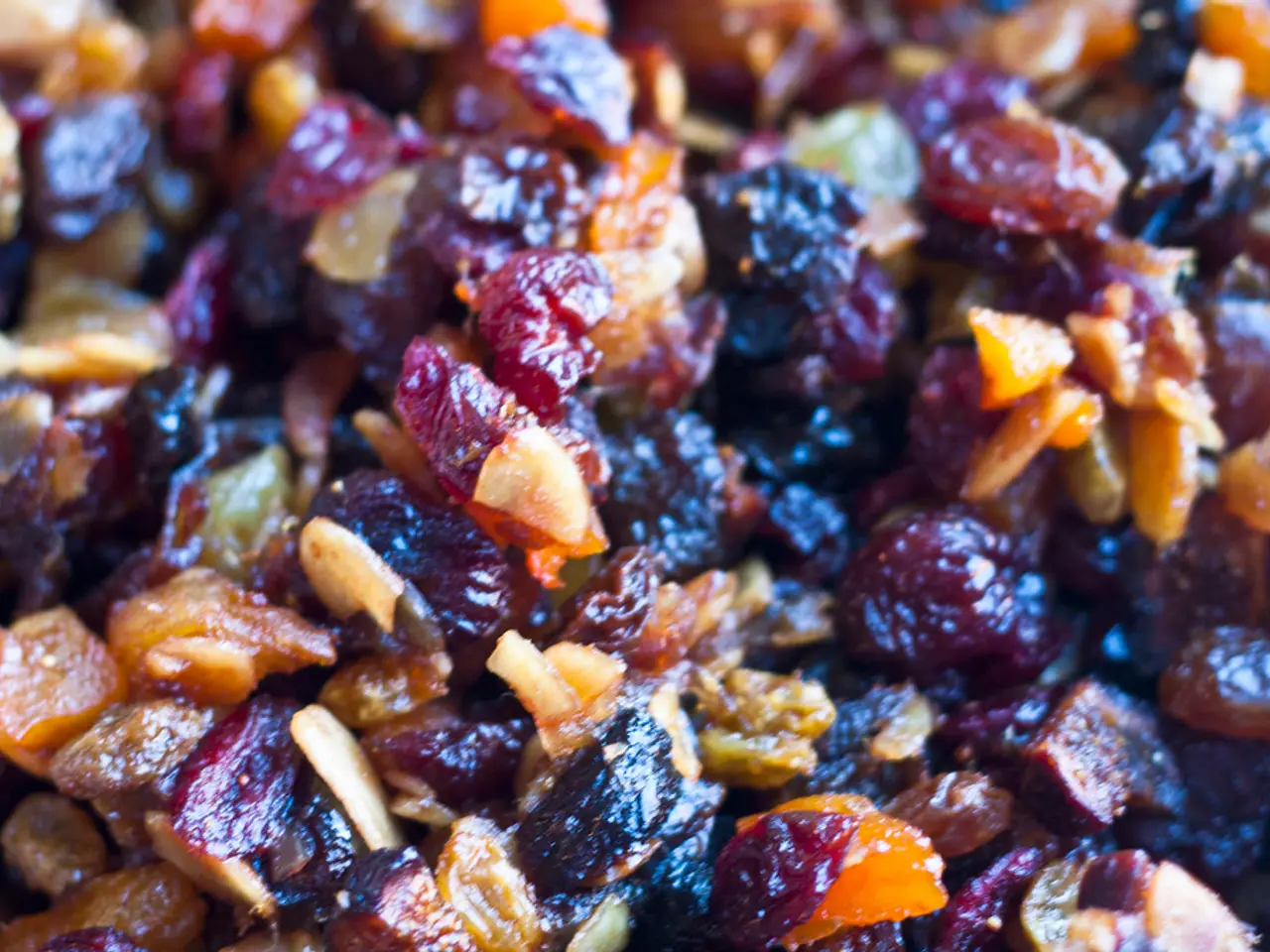Top Nutritious Foods Fueled by Beneficial Bacteria for Optimal Nutrition
In the quest for a healthier digestive system, probiotics have gained significant attention. These microorganisms, naturally present in the digestive tract, aid in digestion and reduce inflammation. Here's a guide to incorporating probiotics into your diet, focusing on common probiotic foods that extend beyond dairy products.
Probiotics, often associated with yogurt, can also be found in a variety of fermented vegetables, beverages, and plant-based products. One such example is kimchi, a spicy, fermented vegetable dish rich in beneficial bacteria. Sauerkraut, another fermented cabbage, provides probiotics, particularly when refrigerated versions are consumed.
Miso, a fermented soybean paste used in soups and dressings, and tempeh, a fermented soybean product high in probiotics and protein, are also worth considering. Pickles, especially refrigerated and naturally fermented ones, are another probiotic source.
Kombucha, a fizzy, fermented tea made from green or black tea, sugar, yeast, and bacteria, offers antioxidants and probiotics. Sourdough bread, made through natural fermentation, provides both probiotics and prebiotics.
For those avoiding dairy, there are numerous non-dairy probiotic foods derived from fruits, cereals, and soy-based fermentations. Plant-based probiotic yogurts made from coconut or fruit bases are commercially available.
It's important to note that not all yogurts contain live and active cultures. To ensure the foods contain live and active cultures, always read food labels carefully or consider taking a supplement. Food manufacturers may label probiotics as "live culture" or "active cultures."
Incorporating probiotic foods into the diet could help improve digestion, but the optimal dosage and food types are not yet known. It is recommended to look for foods that have minimal artificial sweeteners, sugars, and other artificial flavorings.
Certain foods, especially yogurt, may contain added sugars. It is best to incorporate tempeh at the end of cooking as excessive heating can destroy the active cultures.
For those with compromised immune systems, pregnant women, and those with pre-existing medical conditions, it is advisable to consult a doctor before eating more probiotic foods. A nutritionist may also be able to recommend safe ways to incorporate probiotics into a person's diet.
Researchers are studying the benefits of probiotics for various health conditions, including the common cold and inflammatory bowel disease. Probiotic-rich beverages like kefir or kombucha can be consumed as a mid-morning snack.
In conclusion, probiotic-rich foods offer diverse ways to support a healthy gut, extending beyond traditional dairy products. By incorporating a variety of probiotic foods into your diet, you can contribute to a healthier digestive system and overall wellbeing.
- Kimchi, a spicy, fermented vegetable dish, is rich in beneficial bacteria and can be used to incorporate probiotics into your diet.
- Miso, a fermented soybean paste, and tempeh, a fermented soybean product, are other non-dairy sources of probiotics that are worth considering.
- Sourdough bread provides both probiotics and prebiotics, making it another health-and-wellness-focused choice for your diet.
- For those who avoid dairy, plant-based probiotic yogurts derived from coconut or fruit bases are commercially available.
- Research indicates that probiotics may offer potential health benefits for conditions like the common cold and inflammatory bowel disease, highlighting the importance of incorporating probiotic-rich foods into your nutritionally balanced diet.




